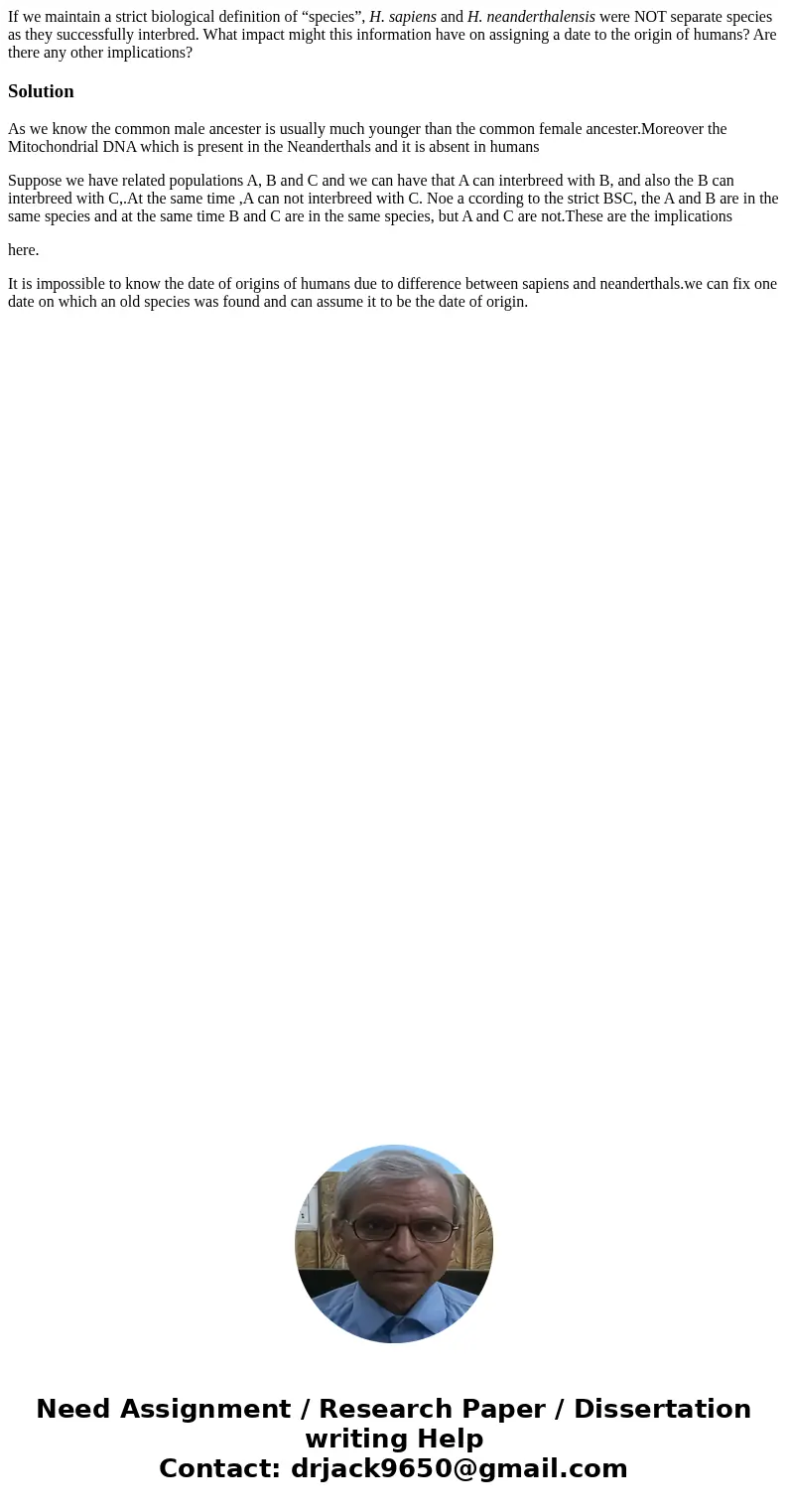If we maintain a strict biological definition of species H s
If we maintain a strict biological definition of “species”, H. sapiens and H. neanderthalensis were NOT separate species as they successfully interbred. What impact might this information have on assigning a date to the origin of humans? Are there any other implications?
Solution
As we know the common male ancester is usually much younger than the common female ancester.Moreover the Mitochondrial DNA which is present in the Neanderthals and it is absent in humans
Suppose we have related populations A, B and C and we can have that A can interbreed with B, and also the B can interbreed with C,.At the same time ,A can not interbreed with C. Noe a ccording to the strict BSC, the A and B are in the same species and at the same time B and C are in the same species, but A and C are not.These are the implications
here.
It is impossible to know the date of origins of humans due to difference between sapiens and neanderthals.we can fix one date on which an old species was found and can assume it to be the date of origin.

 Homework Sourse
Homework Sourse